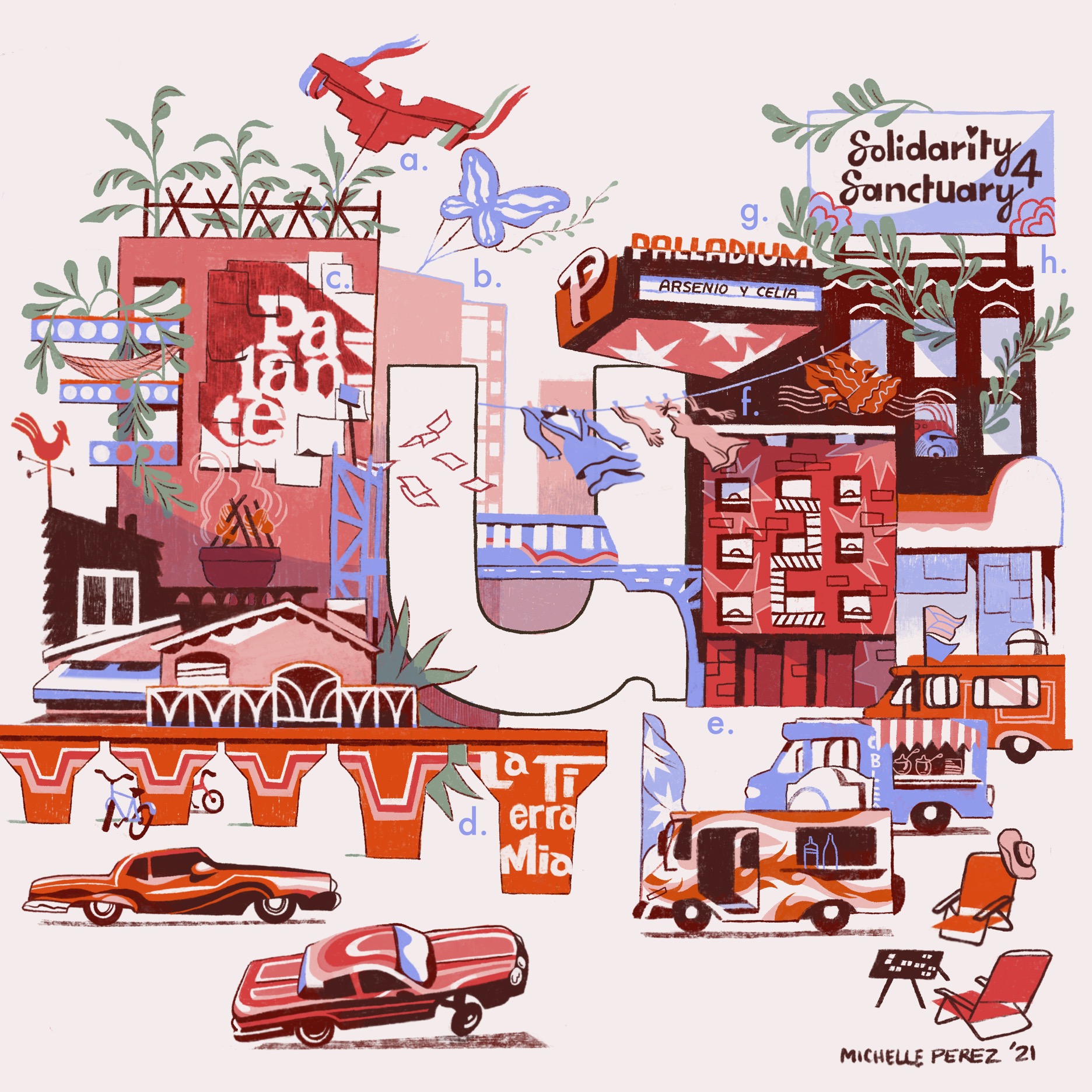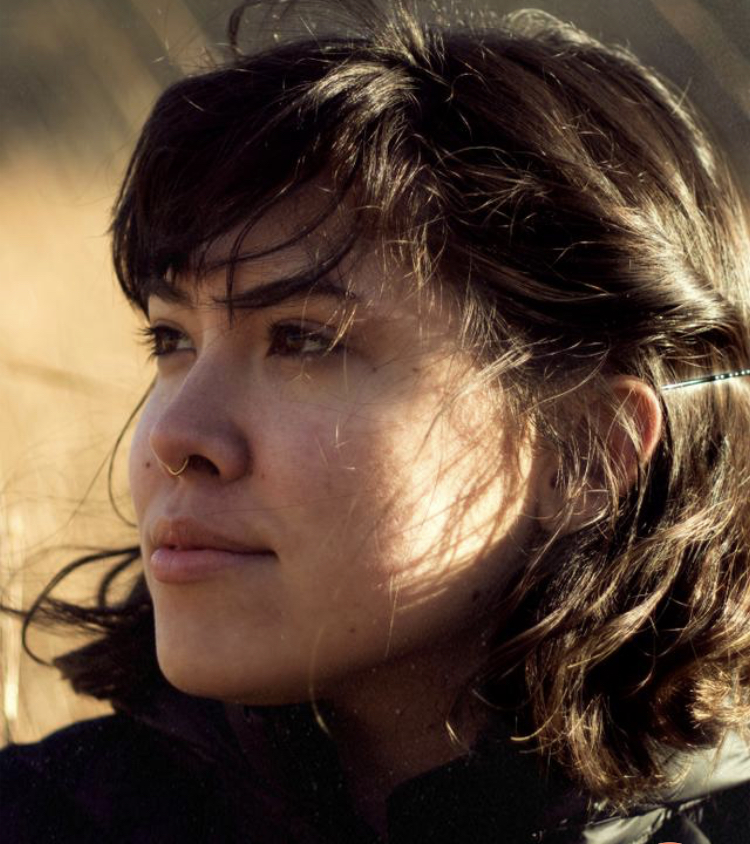Artist Michelle Perez re-envisions Utile logo for Hispanic Heritage Month
Today kicks off #HispanicHeritageMonth! As a continued effort in our Justice, Equity, Diversity, and Inclusion (JEDI) Initiative, we are engaging talented artists to re-envision our logo to honor commemorative observance months throughout the year. For this important month, Providence, RI-based illustrator Michelle Perez has created a newly-inspired rendition of our Utile logo.
Artist statement from Michelle Perez:
“For this Hispanic Heritage Month, I wanted my piece to speak to themes of solidarity and community throughout Latinx history. I decided to depict a neighborhood that is a sum of its parts; as the term ‘Latinx’ is an accumulation of intersecting traditions, racial identities, and colonial/imperialist histories. These parts in my illustration represent movements, organizations, and cultural spaces that speak to the value of community; from farmworker unions in California to the ballroom houses and families in New York. I encourage you to read about these histories beyond the short summaries provided. I think these aspects of Latinx history demonstrate how we can rally around those intersections of social need, political power and cultural identities in order to advocate and care for each other within a very individualistic country.
The end of this summer has had me feeling nostalgic– for tacos at Food Truck Paradise off the Connecticut turnpike; for the hoards of families that pull up to the beach at 5pm sharp with stereos and domino sets in hand; for barbecues and sharing food and stories together. So I wanted to capture that kind of communal spirit as well.”
The United Farm Workers came together at the merging of the organizing efforts of Dolores Huerta and César Chávez of the National Farm Workers Association, and Larry Itliong of the Agricultural Workers Organizing Committee. The 1965 strike against Delano, CA grape growers brought predominantly Filipino and Chicano farmworkers together to organize field pickets and boycotts of table grapes across California. A year later their forces officially merged to form the UFW and by 1970 they were able to secure union contracts and gain higher wages, health care, and community centers for farmworkers.
Sin Fronteras Farm and Food began in 2014 on a one-acre farm in Stillwater, Minnesota and has since grown to a seventeen-acre farm in Stockholm Wisconsin, producing food for local restaurants and grocery co-ops with traditional Latinx diets, and Indigenous and sustainable farming practices in mind.
The Young Lords were an organization of revolutionary street activists established in Chicago in 1968. Led by Cha Cha Jiménez, the group was inspired by the Black Panthers’ organizing tactics of mass education, community aid programs, and occupations of local buildings to distribute food and resources. The Young Lords established Palante, a publication for revolutionary essays expressing solidarity with 60s’ feminism, gay rights activism, Black Power and Puerto Rican independence movements.
Chicano Park is a seven-acre park located in the heart of San Diego’s oldest Mexican-American neighborhood, and decorated with the world’s largest concentration of Chicano murals. What had once been a middle-class neighborhood was demolished in the 1960s by the California Department of Transportation in order to build the 1-5 freeway. After effective organizing and negotiating by the local community, they were able to secure the land under the Coronado Bridge for the formation of Chicano Park in 1971.
The Star (Street Transvestite Action Revolutionaries) House was a gay and trans political collective founded by Sylvia Rivera and Marsha P. Johnson in 1970. This street activist organization provided housing and support for LGBT youth and sex workers, and was itself funded largely by sex work. The collective advocated strongly for social services for all and condemned targeted policing and incarceration.
Hector Valle and Angie Xtravaganza were the founding members of the House of Xtravaganza, one of the most famous houses to emerge from the NYC ballroom scene. Along with other members of the ballroom community, Hector founded the House of Latex project to provide HIV/AIDS advocacy and outreach for Black/Latinx communities.
The Palladium Ballroom, known as the “Home of the Mambo,” was central to the growth of Latin music and dance in New York City during the 1950s. Afro-Cuban instrumentation and musicians like Arsenio Rodriguez and Celia Cruz laid the framework for popular Latin music genres like salsa to flourish to worldwide acclaim and popularity.
Solidarity for Sanctuary is an organization that advocates for immigrant rights by connecting local communities with non-profits and larger immigration reform efforts through educational events and performances by Latinx musicians, poets, and activists.

